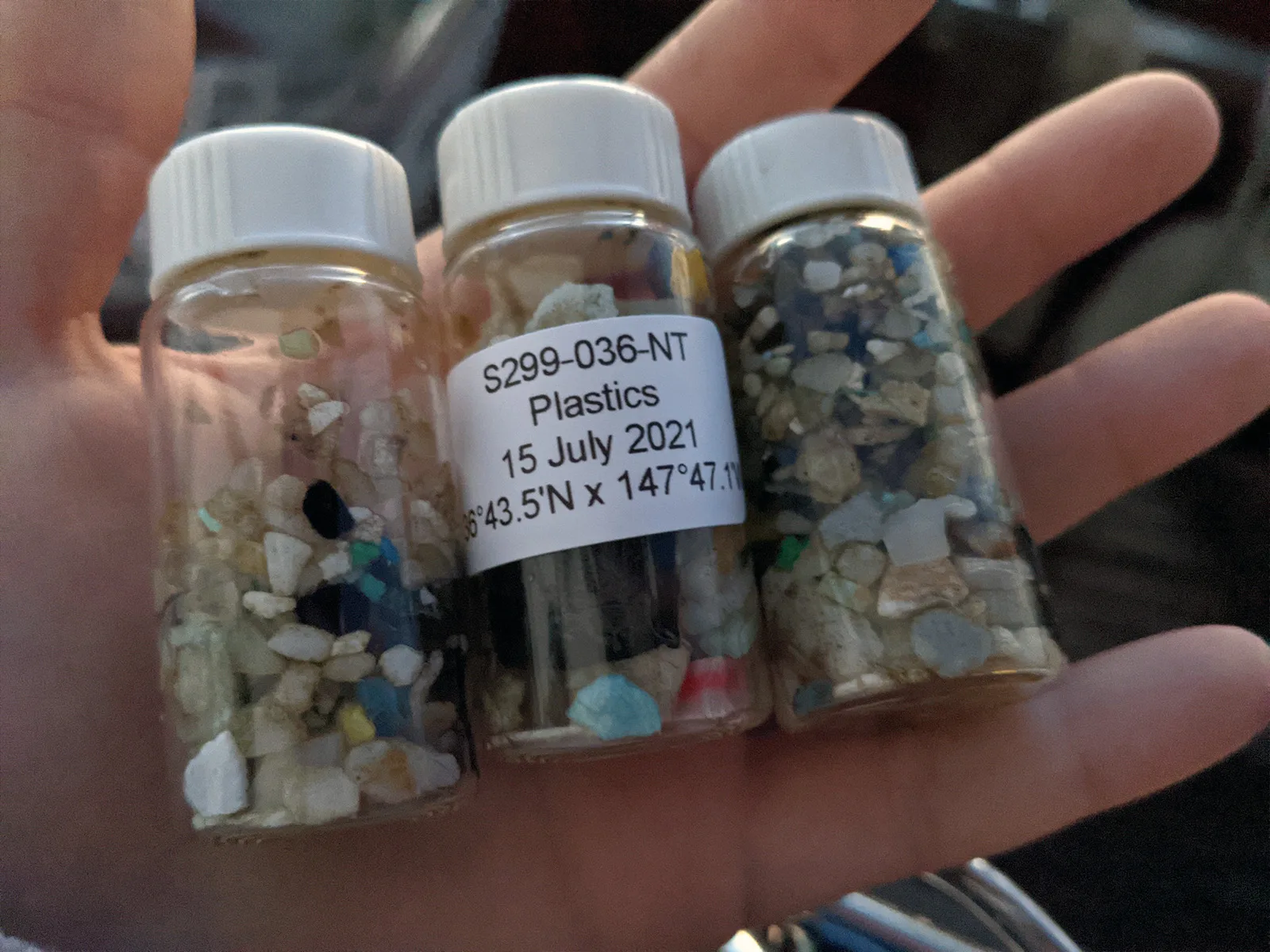News
Plastic Pollution@SEA: National Academy of Sciences Releases a Congressionally Mandated Report

Dr. Kara Lavender Law, Research Professor of Oceanography at Sea Education Association, is a co-author and committee member of The National Academies of Sciences’ report “Reckoning with the U.S. Role in Global Ocean Plastic Waste.” The report, requested by congress as part of the Save Our Seas 2.0 Act, outlines the United State’s contribution to global ocean plastic waste and its role in addressing the issue.
The report recommends the U.S. establish a comprehensive federal policy and research strategy to reduce its contribution of plastic waste to the environment and ocean. This strategy should be developed by a group of experts by Dec. 31, 2022 and implementation should be assessed by Dec. 31, 2025.
“We suggest that one way to reduce plastic waste would be to make less plastic,” said Dr. Lavender Law. “Recycling cannot manage the vast majority of the plastic waste that we generate.” The panel provided a menu of potential ways to fix the plastics problem, starting with “national goals and strategies to cap or reduce virgin plastic production.”
“This report is a sobering reminder of the scale of this problem,” Sen. Dan Sullivan (R-Alaska), said in a statement. “The research and findings compiled here by our best scientists will serve as a springboard to our future legislative efforts to tackle this entirely solvable environmental challenge and better protect our marine ecosystems, fisheries, and coastal economies.”
More about the report and its finding at:
- NPR: 2 minute listen. Report says fixing plastics’ pollution in the oceans requires a new approach.
- Washington Post: U.S. is top contributor to plastic waste, report shows. Scientists reveal the U.S. role in the ‘deluge’ of plastic littering the world’s oceans in a congressionally mandated report.
- The National Academies of Sciences, Engineering and Medicine
- News Release: U.S. Should Create National Strategy by End of 2022 to Reduce Its Increasing Contribution to Global Ocean Plastic Waste, Says New Report
- Read or download the full report
- View the interactive report highlights
Law will also participate in a webinar to review the state of the science and research gaps related to plastics and microplastics in food and water. Invited speakers will discuss the state of the science, discuss human health impacts, policy and regulatory implications, and consumer risk perceptions of microplastics in food and water. Register for the December 8, 2021 webinar at the Academies’ website.
SEA scientists, crew and students have spent decades collecting floating microplastics in plankton nets, “The data,” Dr. Lavender Law says, “has been invaluable in detecting and describing the scope of the problem, and also provides a baseline to evaluate changes in time.”
We encourage students interested in learning more about plastics research to look at our Summer 2022 “Ocean Exploration: Plastics Expedition” – a six week credited program for undergraduates interested in gaining a better understanding of the world’s oceans through hands-on research and personal experience.
Contact: Douglas Karlson, Director of Communications, 508-444-1918 | dkarlson@sea.edu | www.sea.edu